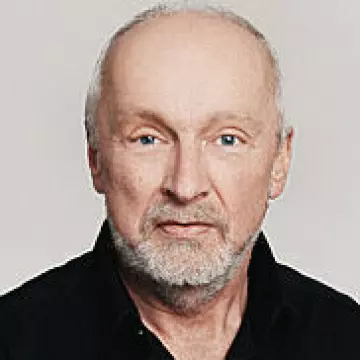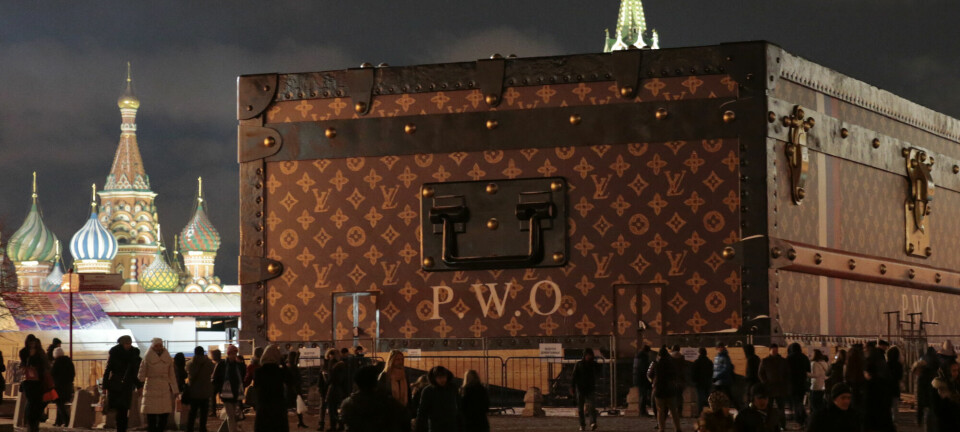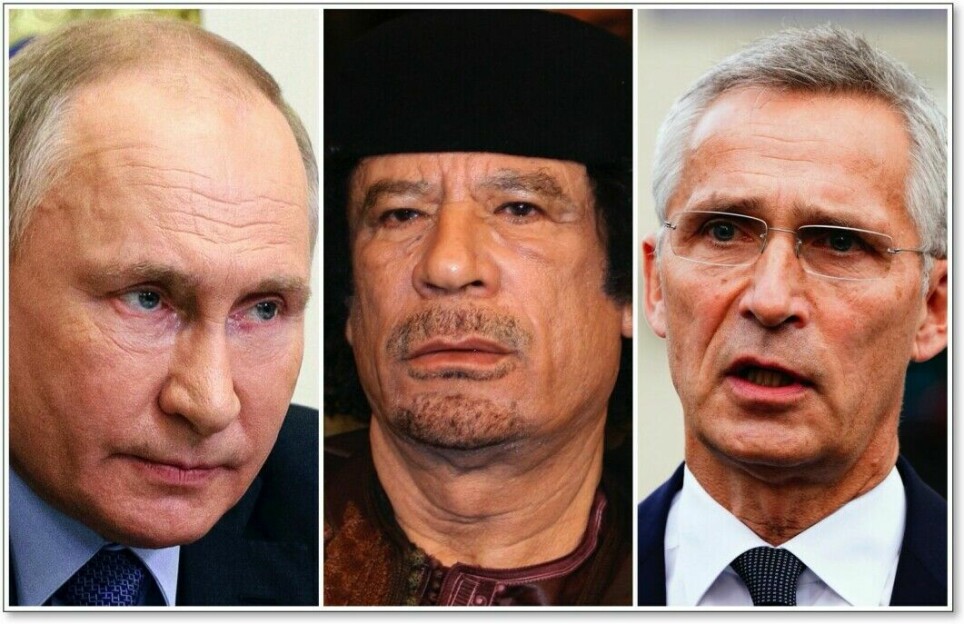
Putin and the West have different morals. Does that lie at the root of the conflict?
Putin is concerned with honour. The West is concerned with dignity.
If we understand this difference in moral culture, then we can also better understand the conflict between Russia and the West.
This is according to Professor Jardar Østbø, from the Norwegian Institute for Defence Studies (IFS) in Oslo.
Western leaders such as George Bush, Barack Obama, Jens Stoltenberg and other heads of state have been very concerned about morals and dignity.
The morality of dignity has now become a typically Western concept.
In authoritarian regimes such as Russia, however, the honour of the leader and the country is of great importance instead.
It's not just about weapons and soldiers
Many experts try to explain the conflict between Russia and the West as being about Ukraine and about security policy.
They analyse weapons, soldiers and the balance of power between the different groups.
But what is Vladimir Putin really looking for?
Østbø emphasises that part of the issue concerns security. But he also believes that analysis of the conflict may benefit from a completely different perspective.
Putin and the criminal gangs
Østbø includes subjects such as sociology and social anthropology when he tries to explain Putin and Russia.
For example: Can Vladimir Putin's tough experience with criminal gangs in the back streets of St. Petersburg in the 1990s help us understand what is happening now?
Østbø also leads IFS' Programme for Russian Security and Defence Policy, funded by the Norwegian Ministry of Defence and the Research Council of Norway.
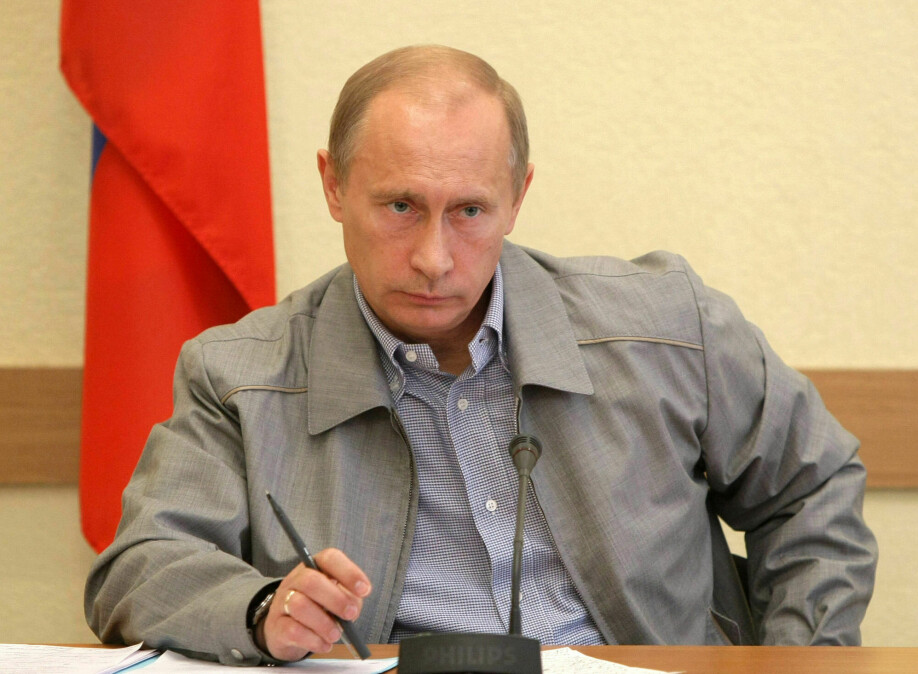
Putin can’t possibly resign
Like so many other authoritarian leaders, Putin has gradually gotten a lot on his conscience.
“It’s impossible for Putin to resign as Russia's leader without risk to himself and his family,” Østbø said.
The biggest threat to Putin within Russia's own borders today is a man named Alexei Navalny. When thousands of Russians took to the streets to support the poisoned and then imprisoned opposition politician, it may have made a strong impression on Putin.
The YouTube video in which Navalny claims to reveal ‘Putin's palace’ has been viewed well over 100 million times. The revelation that Putin and his friends may have built a gigantic and luxurious palace for themselves on the Black Sea was the most popular video in Russia in 2021.
Fear of ending up like Gaddafi?
Putin is also said to have sat and stared at another YouTube video in 2011, according to the Russian historian Yuri Felshtinsky, who is not exactly a fan of Putin.
This gruesome video shows Libya's leader Muammar al-Gaddafi being killed by a raging crowd.
Felshtinsky's special focus as a historian is the poisoning of Russian opposition figures. One of his collaborators was Alexander Litvinenko, who himself died from poisoning in London in 2006.
Felshtinsky warns that we will see even more repression of Russian opposition in the coming years with Putin. Recently, Putin, a former KGB officer, ensured that he can remain Russia’s leader until at least 2036.
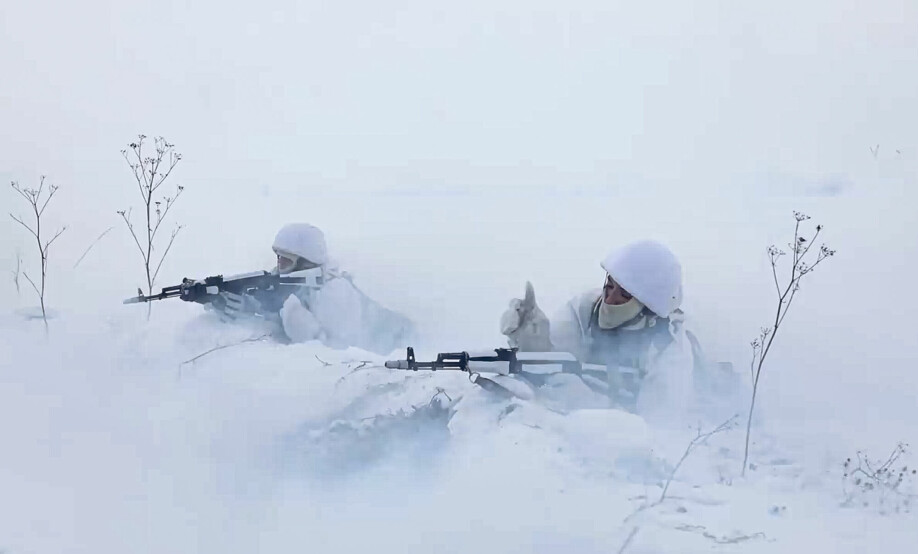
Russia's idea of security
The Russians, like Norwegians and other peoples, want to be safe within their country's borders.
“But Russia's idea of security is inextricably linked to being seen as a great power with rights outside the country's own borders,” Østbø said.
For Russia, status as a great power means being listened to by other great powers. And an important issue for the Russians is their neighbouring countries' affiliation with alliances such as NATO.
Østbø believes the Russians themselves are convinced that they are helping to increase security in the region around them when they insist on preventing other countries from joining NATO.
This is in stark contrast to how people in the West think. Here the prevailing idea is that countries and peoples themselves have a sovereign right to decide which alliances, like NATO, that they want to join.
- MORE ON RUSSIA: Have Russian climate scientists convinced Vladimir Putin that climate change is real?
The West wants to spread the morality of dignity
Østbø says that if we are to understand Russia, we must also understand how we in the West ourselves think.
“With the United States at the forefront, we in the West are now trying to spread a kind of morality of dignity to the rest of the world,” he said.
We do this, in part, by giving either direct or moral support to people who rebel against authoritarian leaders.
The United States, Norway and other Western countries have done this in Burma, Syria, Belarus, Hong Kong and a number of other places,” he said. “Think of the Orange Revolution in Ukraine, which is also called the Revolution of Dignity.”
“We saw the same thing in the revolution in Georgia. For both the Ukrainians and the Georgians who were involved in the revolution, it was much about dignity,” Østbø said. “This dignity relates to the idea that all people are created equal, regardless of social status, ethnicity, political position or sexual orientation.”
Østbø points out how focused NATO Secretary General Jens Stoltenberg is in presenting the defence alliance as a community built on values.
“Former NATO leaders have also been engaged in the morality of dignity. Or morality that stands in opposition to immorality,” Østbø said.
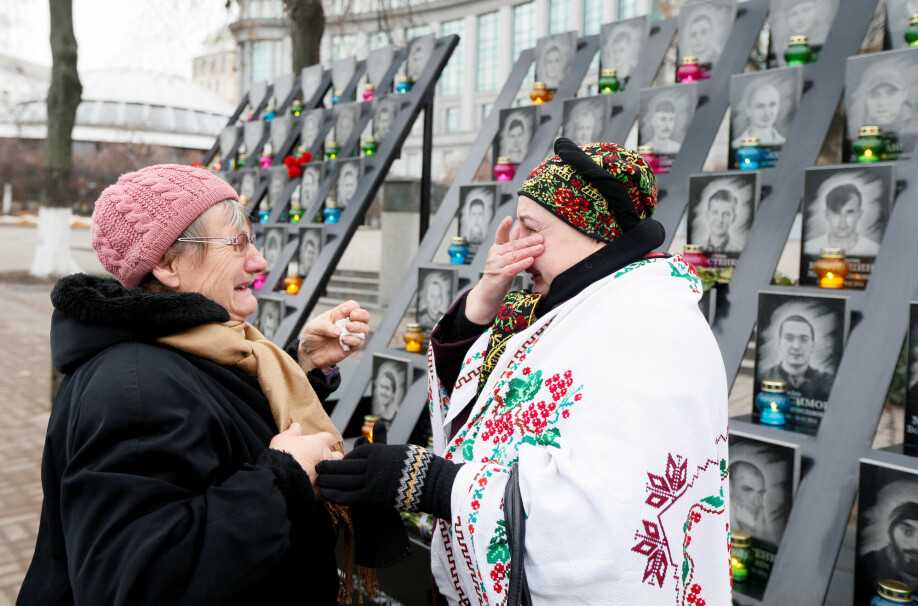
The democratic peace theory
This Western focus on dignity is something fairly new, Østbø points out.
“It is admittedly something we also find in the UN Declaration of Human Rights. But we’ve seen the concept grow as a kind of moral principle in international politics in recent decades.”
The Russia researcher links this new morality of the West to a theory that the philosopher Immanuel Kant came up with more than 200 years ago.
This was a theory that political science academics engaged with in the 1980s — and established as correct.
The democratic peace theory contends that democracies throughout history have almost never gone to war against each other.
Wars are fought almost exclusively between authoritarian regimes ruled by leaders who are more or less dictatorial — or between an authoritarian regime and a democracy.
If all countries in the world would become democracies, then there would be no wars between countries.
As long as the countries in and around Europe are democratic, this will ensure peace in Europe, which has been the thinking behind NATO.
“NATO membership, and preferably EU membership, are seen as guarantees for democracy. Thus, they also become guarantees of security and peace,” Østbø said.
This probably has much to do with why leaders in the West are so concerned with spreading the morality of dignity and the associated idea of democracy to the rest of the world around us.
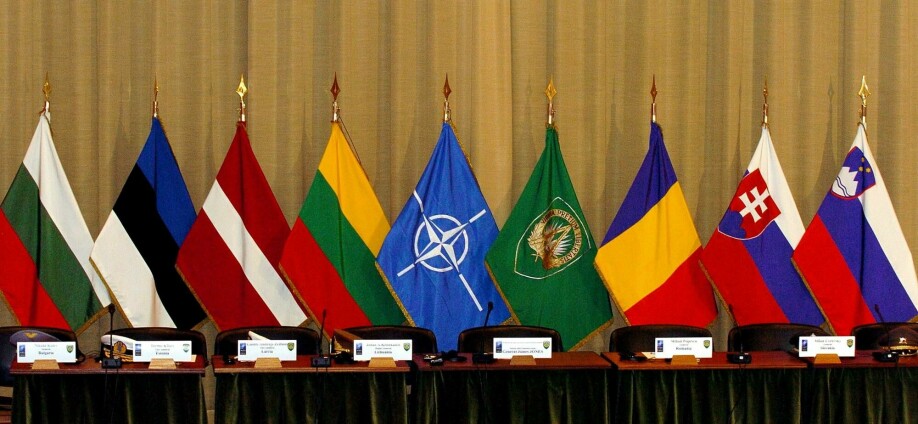
Something new in international politics
But all this is something quite new in society and politics, Østbø said.
“The morality of dignity that we are so fond of cannot be imposed on other societies. It resulted from of special conditions, including a large degree of personal security and financial security, as well as a functioning legal system,” he says.
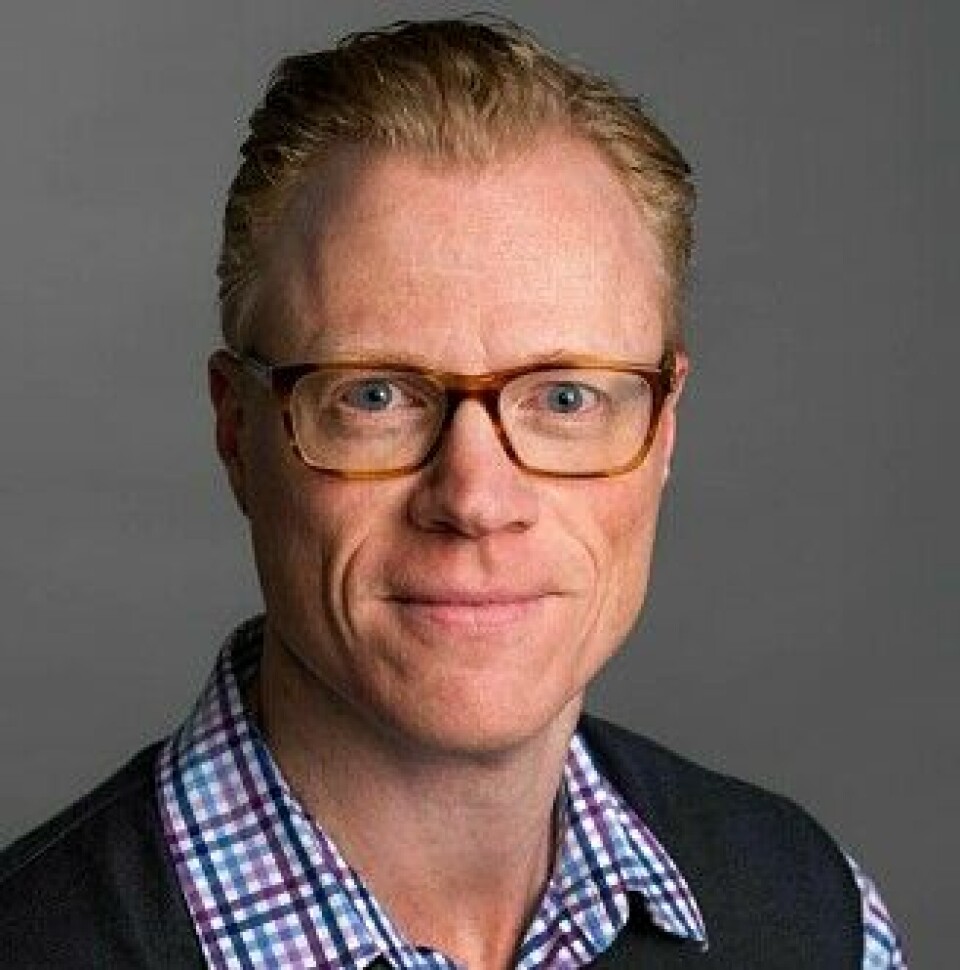
People have lived with notorious uncertainty
Until quite recently, many people in the world lived in a state of notorious uncertainty.
Throughout history, people have feared that someone could come and attack them at any time and take everything they owned.
“The solution to this has been to gain the respect of other people,” Østbø said.
“If someone insulted you, you had to respond immediately to this insult to maintain your status. You had to fight back. You had to do that even if an insult, from our perspective seems insignificant,” he said.
“This is how people lived a thousand years ago. This is how some people still live. Think of the American South and the culture of honour that still exists in places there,” he said.
“If someone pushes you on purpose, then it is important to attack back,” he said.
Honour culture in Norway and around the Mediterranean
“There is sometimes talk in Norwegian society of ‘blikking’, to stare someone down, among youths, particularly in the suburbs of Oslo. If someone gives you a mean stare, you are forced to attack that person if you want to maintain your honour. The tradition of blood feuds in some rural areas in countries around the Mediterranean is another example,” Østbø said.
Østbø believes that we typically find the morality of honour where there is no third party that can help resolve conflicts.
He thinks that the morality of honour is something an ordinary middle-class Norwegian would have trouble understanding. Most Norwegians live in areas that are far too safe. But this kind of morality can be found by moving “down” in Norwegian society, he said.
For criminal gangs, the morality of honour is a part of everyday life.
The Russians have lived with a lot of insecurity
But what does this have to do with international politics?
“In international politics, there is rarely a reliable third party who can resolve conflicts. Despite all our conventions and agreements, it is ultimately the right of the strongest that applies,” he said.
On top of this, Russia is a country that has been particularly affected by geopolitical uncertainty.
“Remember Napoleon, whose soldiers marched all the way to Moscow, and Hitler, who advanced far into Russia’s centre. Not to mention the dissolution of the Soviet Union 30 years ago,” he said.
“These historical events are still very much alive in the consciousness of Russians, well aided by state-controlled perspectives on history,” he said.
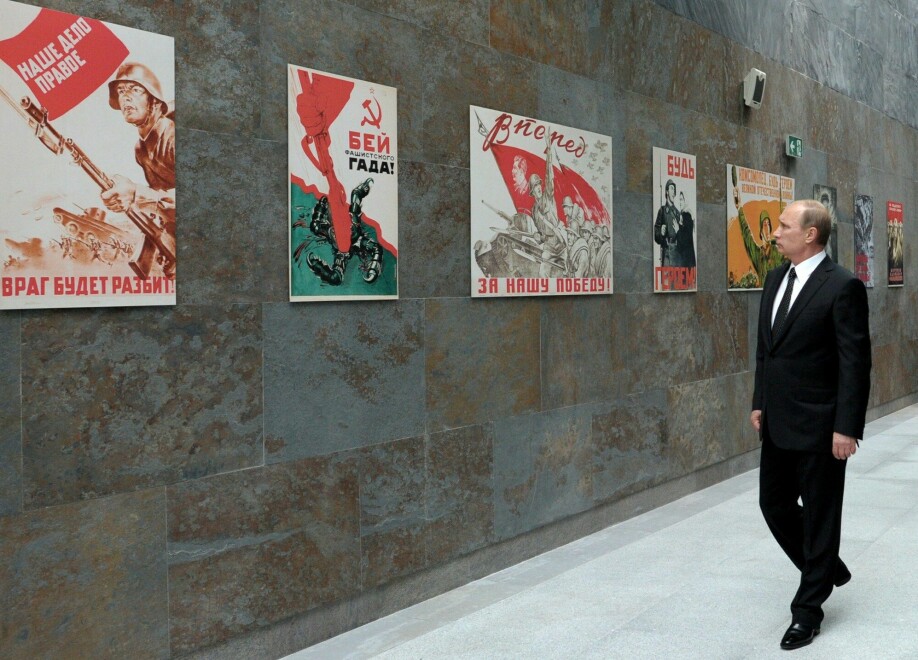
Putin's horror experience from the 1990s
Putin is at the top, as a person who has grown up with notorious insecurity.
Vladimir Vladimirovich Putin was born in Leningrad (now St. Petersburg) in 1952 and grew up in a municipal apartment.
He studied law and became a KGB officer in East Germany, under the guise of working as a translator. In 1990, the year before the dissolution of the Soviet Union, Putin got a job in the city administration of Mayor Anatoly Sobchak in Leningrad.
The 1990s are something many Russians today think back on with horror. Putin probably does, too.
The Soviet Union never made most people prosperous. But in the last couple of decades of communist rule, the Soviets lived with economic security, basic welfare benefits, little everyday crime, and a lot of predictability in everyday life.
After the collapse of Soviet society, this was replaced by an extreme version of Western economic neoliberalism. People got a lot of individual freedom. But they lost almost all their financial security.
“Law and order collapsed, crime skyrocketed, privatization led to chaos and many Russians fought from day to day to survive,” Østbø said.
Putin's language of power
This chaos spread into politics and Putin learned a lot about honour culture.
“He had grown up in a tough neighbourhood in Leningrad, now St. Petersburg. As an adviser to the mayor and later as deputy mayor, he had to deal with and interact with the city's most powerful criminal gangs,” Østbø said.
Vladimir Vladimirovich gained experience in both harsh language and harsh actions.
He also understood how important it is in Russia to be able to present himself as a hyper-masculine man.
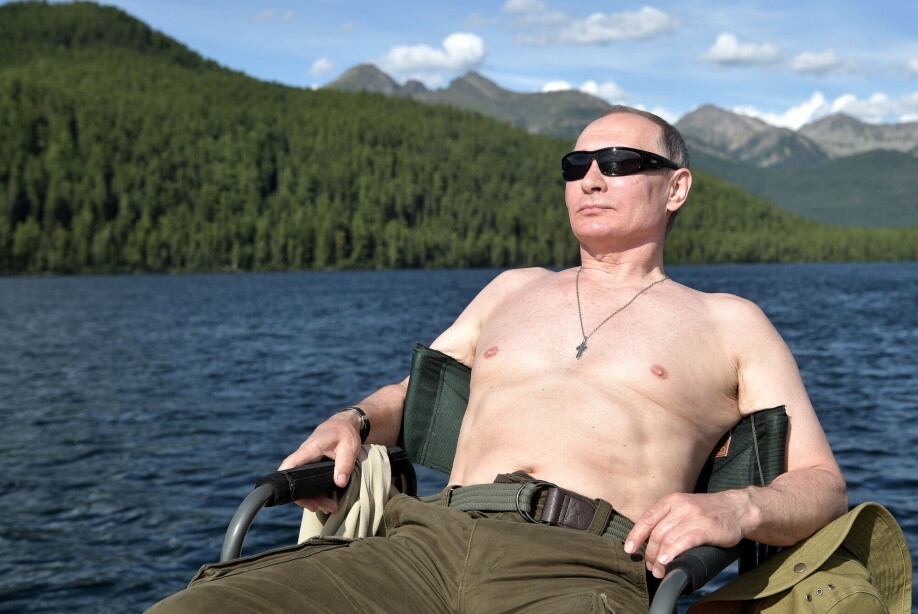
Putin as gang leader
Østbø points out that these are aspects of Putin that we have seen time after time.
When he was just beginning his career as Russian head of state, he was at the forefront of the very brutal Chechnya war, and later attacked territories in both Georgia and Ukraine.
“As Russia’s leader, Putin has brought with him the culture of honour and the language of power from the streets of St. Petersburg,” Østbø said.
Putin and the state are the gang that other gangs ‘in the city’ shouldn’t mess with.
In order to maintain supreme power in his gang and rule safely, Putin has made sure to distribute much of Russia's financial wealth and power among his closest allies.
- READ MORE about this here: Why is Russia's economy doing so poorly?
Colour revolutions are perceived as threatening by Putin
International relations are a de facto kind of anarchy, Østbø says.
“This is something that promotes the morality and behaviour of honour that we now see in Putin and Russia,” he said.
“Add to that Russia's experience of living in constant geopolitical uncertainty, as well as the historical memory of repeated invasions and unrest.”
Most important of all right now, Østbø believes, is perhaps the threat from the West's campaign to promote dignity.
The moral and practical support the West has given to colour revolutions in one former Soviet country after another is perceived by Putin as very threatening, Østbø believes.
These revolutions typically involve large numbers of people rising up against authoritarian leaders, many of whom have been more or less allied with Putin.
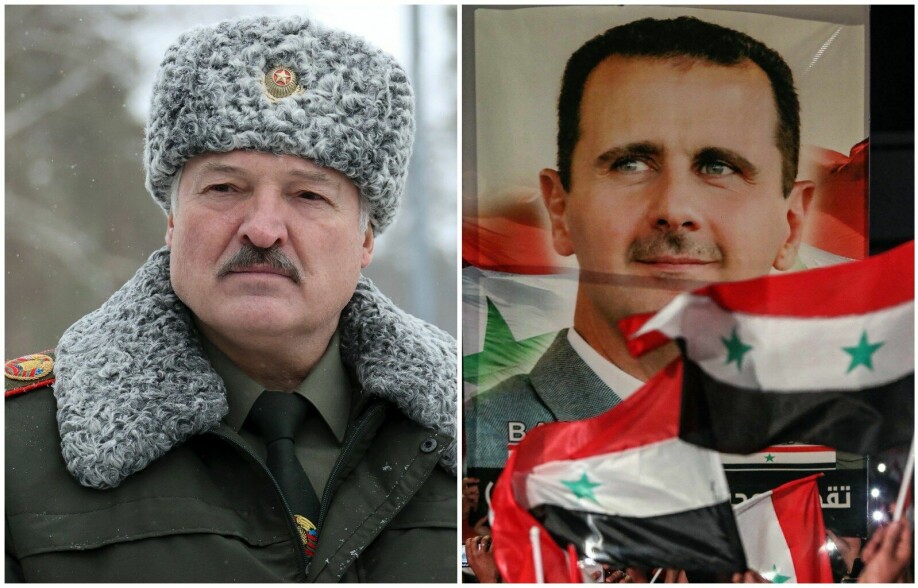
Surrounded by the West
Today, Putin and his closest colleagues in Moscow have a sense of being surrounded by the West.
They have NATO countries and EU countries or Western-friendly countries all the way to the north, west and south.
“If we understand this Russian feeling of being under attack and the Russians' experience of living with notorious insecurity, that can help us understand a little better why the country is behaving as it is now,” Østbø says.
“If you add Putin's experience with honour culture and how important it is to be the one who shows strength, that makes it possible to understand a little more.”
The Russian regime does not buy into the democratic peace theory either, Østbø says.
“Nor do they buy the Western rhetoric about dignity, and certainly not the teaching of morals, especially when it comes from a hostile military alliance.”
Putin's uncertain position in Russia
At the same time, Østbø points out that Putin himself has a more uncertain position within Russia than many of us in the West think.
“Even though he is the authoritarian leader in a person-focused system, he does not have the power to be able to do exactly what he wants,” Østbø said.
If Putin shows weakness, he puts himself in danger.
This is something Putin himself is well aware of, Østbø said.
“If a president of the United States, a prime minister of Norway or a secretary general of NATO makes a mistake and is not re-elected, well, then they can travel to Florida, Bergen or Oslo to write their memoirs or get another job,” he said.
“But if your name is Vladimir Putin and you are accused of having committed election fraud and have poisoning people on your conscience, then you risk being lynched if you have to relinquish power,” Østbø said. “If not literally, then at least metaphorically.”
Then it’s not necessarily easy to relinquish power.
Whether Putin really repeatedly watched the YouTube video in which Muammar Gaddafi is killed is not possible to confirm from reliable sources. In an article in the London Review of Books, journalist Seymour M. Hersh talks about how President Barack Obama was made aware that this is to have happened. The fact that NATO countries' involvement in the assassination of Libya's authoritarian leader strongly influenced Putin can be seen in his reaction when he visited Denmark in 2011. Both Hersh and several others speculate that the experience of the assassination of Gaddafi may be behind Putin's strong support for Syria's dictator Bashar al-Assad.
Translated by Nancy Bazilchuk
Reference:
Jardar Nuland Østbø: Dignity Promotion and the Revenge of Honour Security and Morality in Russia-West Relations, Journal of Extreme Anthropology, nr. 1/2020.
———
Read the Norwegian version of this article at forskning.no







